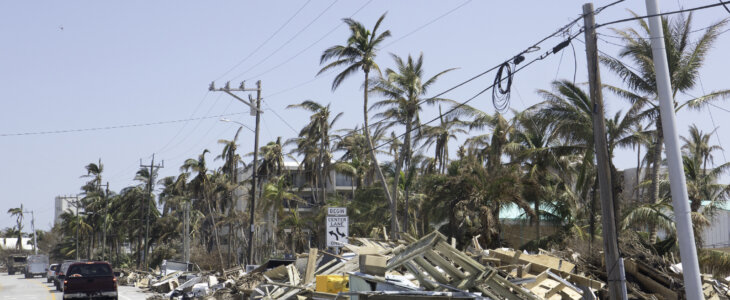Rebuilding after hurricane damage can be overwhelming, especially when dealing with insurance claims, building permits, and contractors. You may be wondering what steps to take and how Florida’s unique regulations impact your ability to restore your property. From understanding your insurance coverage to meeting strict building code requirements, the process can be complex. We’ll help guide you through key legal considerations to ensure your rebuilding efforts comply with state laws and that you’re fully prepared for what lies ahead.
Understanding Your Insurance Policy: What’s Covered and What’s Not
When it comes to rebuilding after hurricane damage, the first step is understanding what your homeowners’ insurance policy covers. Most standard policies include protection for wind damage, but many exclude coverage for flood-related damage, which is often a significant part of hurricane destruction. This gap can leave homeowners with unexpected out-of-pocket costs if they don’t have a separate flood insurance policy.
It’s important to review your policy carefully to determine which aspects of your home are covered, from structural damage to personal belongings. Be mindful of deductibles that apply specifically to hurricane-related claims, as these can be higher than those for other types of damage. In some cases, policies may include exclusions for things like mold or debris removal, which can complicate your recovery efforts.
If you’re unsure about your coverage, it’s essential to get clarification from your insurer before proceeding with any repairs or rebuilding. This will ensure you’re not left with surprises later on.
Navigating Florida’s Building Codes and Permits
Rebuilding after hurricane damage in Florida comes with the challenge of complying with the state’s stringent building codes. These codes are designed to ensure that homes are better equipped to withstand future storms, but they can be complex and often require upgrades to your property during the rebuilding process. For instance, roofs may need to meet wind-resistance standards, and windows may need to be impact-resistant to comply with local regulations.
Before beginning any repairs, make sure to secure the necessary permits from your local building authority. Failing to do so can result in costly fines or even having to redo work that doesn’t meet code. Additionally, permits ensure that your contractor follows proper safety guidelines, protecting you from potential legal and financial liabilities.
Working with a licensed contractor familiar with Florida’s hurricane-specific building codes is key to ensuring your rebuild meets all requirements, allowing you to rebuild safely and in compliance with the law.
Working with Contractors: Contracts, Timelines, and Liability
When rebuilding after a hurricane, working with a reliable contractor is critical, but it’s equally important to have a solid contract in place. A well-drafted contract should clearly outline the scope of work, materials to be used, project timelines, and payment schedules. This not only sets expectations but also protects you if disputes arise.
Additionally, make sure the contract addresses liability. If a contractor fails to meet local building codes or doesn’t complete the job, you need to know your legal recourse. Liability clauses should clarify who is responsible for damages, accidents, or incomplete work.
Timelines are another critical aspect. Be sure to include a clear schedule with milestones for project completion to avoid delays. Delays can increase costs, and contractors should be held accountable for any work that isn’t completed on time. Having these protections in place gives you greater control and reduces the risks of dealing with unscrupulous contractors.
Dealing with Insurance Companies: Filing and Negotiating Claims
Filing an insurance claim after hurricane damage can be a complicated process. First, you’ll need to document all damage thoroughly, including photos and written estimates from contractors. Once your claim is filed, expect an adjuster to assess the damage. It’s important to stay proactive, following up regularly to ensure your claim moves forward.
Insurance companies may initially offer settlements that don’t fully cover your losses. In these cases, negotiation is key. Be prepared to challenge low offers by providing additional evidence and estimates. If necessary, consider seeking legal guidance to ensure you receive a fair payout.
Take Control of Your Rebuilding Journey
At Tomlinson Law Group, we’re committed to helping you get the full compensation you deserve after hurricane damage. From understanding your policy to negotiating with insurers, we’ll guide you through each step. Contact us today for a consultation, and let us help you rebuild with confidence.


